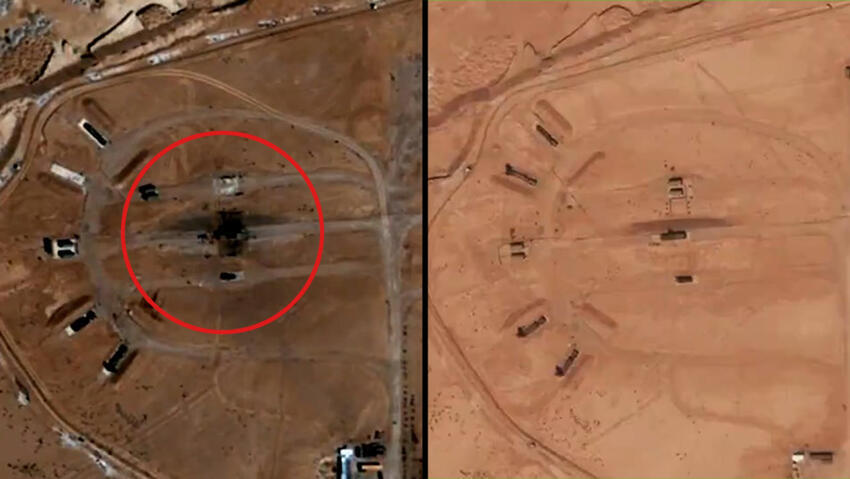Getting your Trinity Audio player ready...
Israel planned to carry out a much broader attack on Iran last week but was restrained by diplomatic pressure exerted from the United States and its allies, as well as the successful interception of hundreds of missiles and drones launched by Tehran, the New York Times reported on Monday, citing three senior Israeli officials.
According to the sources, the Israeli leadership considered bombing several military targets across Iran, including near Tehran, in retaliation for the unprecedented mixed missile and drone attack. Such a move would have been difficult for the Islamic Republic to overlook and would have increased the likelihood of a counterattack.
1 View gallery


Before-and-after satellite images of air defense batteries damaged in Israeli-linked attack on Isfahan Air Base, Iran
Ultimately, following pressure from U.S. President Joe Biden, along with the British and German foreign ministers, Prime Minister Benjamin Netanyahu opted for a more limited action, avoiding significant damage.
Nevertheless, sources told the Times that the attack demonstrated to Iran "the breadth and sophistication of Israel’s military arsenal."
According to the report, instead of deploying fighter jets into Iranian airspace, Israel launched a small number of missiles from aircraft several hundred miles west of Iran.
Israel also deployed small quadcopter drones to confuse Iranian air defenses. Such drones have attacked military facilities in Iran several times in recent years, and on several occasions, Iran claimed it did not know to whom they belonged—a claim interpreted as an unwillingness to respond.
Before-and-after satellite images of air defense batteries damaged in Israeli-linked attack on Isfahan Air Base, Iran
One missile reportedly hit an S-300 air defense battery, which was among the defense layers protecting the uranium enrichment facility in Natanz, while the second missile was intentionally detonated mid-air after confirming the first had reached its target—to avoid causing excessive damage. A Western source, however, suggested the second explosion might simply have been a missile malfunction.
Israeli sources reiterated that while Israel struck Iran, it allowed Tehran to "turn a blind eye," signaling that it has developed capabilities to hit the Islamic Republic without entering its airspace or even activating its air defense batteries.
Israel also hoped to demonstrate to the Iranians its ability to target these batteries deep within Iran, in areas housing major nuclear facilities, including the Natanz facility. The implication, according to the report, was that Israel could have targeted these facilities if it chose to.
Blasts over Isfahan, Iran, last week
The turning point in Israel's plan came on the night of the Iranian attack when Biden spoke with Netanyahu and made it clear that since most of the attack was intercepted, there was no reason for Israel to respond in a way that would lead to further escalation.
Israeli officials signaled the next day that they intended to respond in a limited manner, and the attack was originally planned for Monday night. However, according to the Times, it was postponed at the last minute due to concerns that Hezbollah might escalate its attacks on Israel.
Foreign actors tried to dissuade Israel from responding at all, unsuccessfully, and then expressed willingness for a limited strike without taking responsibility.





